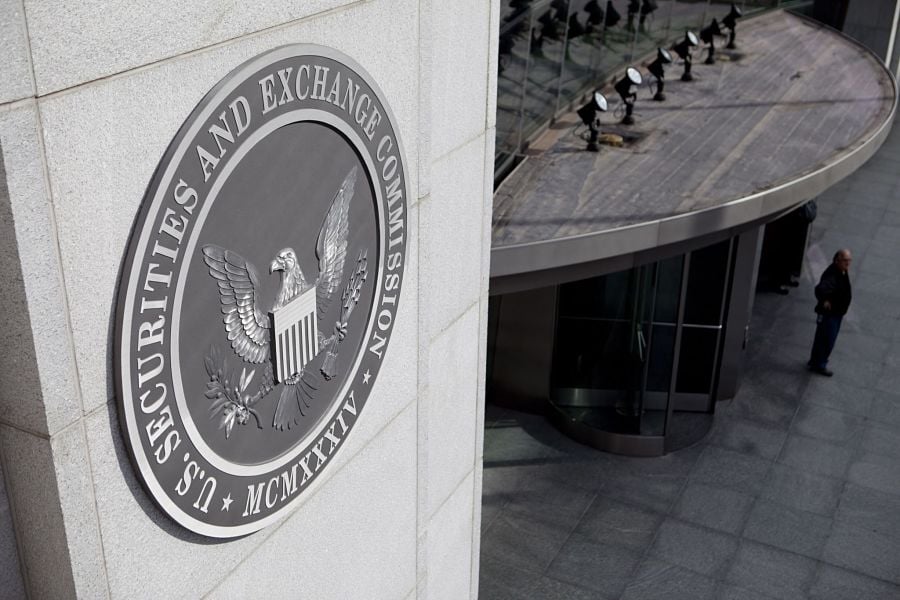

More intense SEC scrutiny of private equity funds could raise regulatory burdens and costs for the investment vehicles but probably won’t cause a slowdown in PE funds' acquisitions of retail investment advisers.
In early February, the Securities and Exchange Commission released a proposal that would give the agency and investors more information about private funds while placing more regulatory requirements on some of their practices.
Among the proposal's requirements, investment advisers to private funds would have to provide investors with quarterly statements about fund performance; undergo an annual audit; and prohibit preferential treatment to some investors unless it’s disclosed to all current and prospective investors.
The proposal also would prohibit private fund advisers from “engaging in certain activities and practices that are contrary to the public interest and the protection of investors,” according to an SEC fact sheet.
The increased oversight probably would give private equity a regulatory jolt but isn't likely to slow acquisitions among RIAs, a rapidly growing sector that now has $18 trillion in assets under management, according to the SEC.
“I think it’s going to cause pain, but they’ll adjust to it and do fine,” said Carlo di Florio, global chief services officer at ACA Group, a compliance consultant.
When it comes to gobbling up RIAs, private equity funds have made a significant bet that “investment management is going to continue to grow at a significant rate,” said di Florio, former director of the SEC Division of Examinations. “They are facilitating consolidation.”
The proposal would change liability standards for private equity funds, which could result in a change in the way funds make deals but not necessarily result in a slowing of the deals, said Leonora Shalet, a partner at Morrison & Foerster.
“I don’t think it’s going to have a cataclysmic impact on the level of interest private equity has in investment advisers,” Shalet said. “It might impact the terms of the transaction.”
Nicholas Miller, a partner at Seward & Kissel, said the changes to private equity oversight would be substantial but didn’t predict how they might affect their market behavior and appetite for RIAs.
“It’s premature to make that call,” Miller said. “But it’s not premature to ask that question. It’s a legitimate question.”
The enhanced oversight of private equity would be a big change for the industry, but it’s not coming out of the blue, di Florio said. The SEC issued private equity risk alerts in June 2020 and in January of this year. The documents outlined compliance shortcomings the agency found in examinations.
The momentum appears to be with significantly tougher oversight of private equity. That could also create substantially higher regulatory costs, Miller said.
“The effect of that would be increased barriers to entry and less choice for investors,” he said.
The proposal will be open for public comment for 30 days after publication in the Federal Register or until April 11, whichever is later.
The SEC will review the comments to assess whether the proposal manages investor-protection risks posed by private equity in a cost-effective way, di Florio said.
“There are certainly significant costs associated with this proposal,” he said. “My sense is the SEC will listen to the comment letter process closely and make adjustments to the proposed rule to more closely tailor it to the objectives without creating unnecessary costs and unintended consequences.”

Osaic-owned CW Advisors has added more than $500 million to reach $14.5 billion in AUM, while Apella's latest deal brings more than $1 billion in new client assets.

The up-and-coming Los Angeles-based RIA is looking to tap Merchant's resources to strengthen its alts distribution, advisor recruitment, and family office services.

US wealth advisory business will get international footprint boost with new tie-ups.

New research shows physicians start their careers at least $200K in debt.

By listening for what truly matters and where clients want to make a difference, advisors can avoid politics and help build more personal strategies.
Orion's Tom Wilson on delivering coordinated, high-touch service in a world where returns alone no longer set you apart.
Barely a decade old, registered index-linked annuities have quickly surged in popularity, thanks to their unique blend of protection and growth potential—an appealing option for investors looking to chart a steadier course through today's choppy market waters, says Myles Lambert, Brighthouse Financial.
